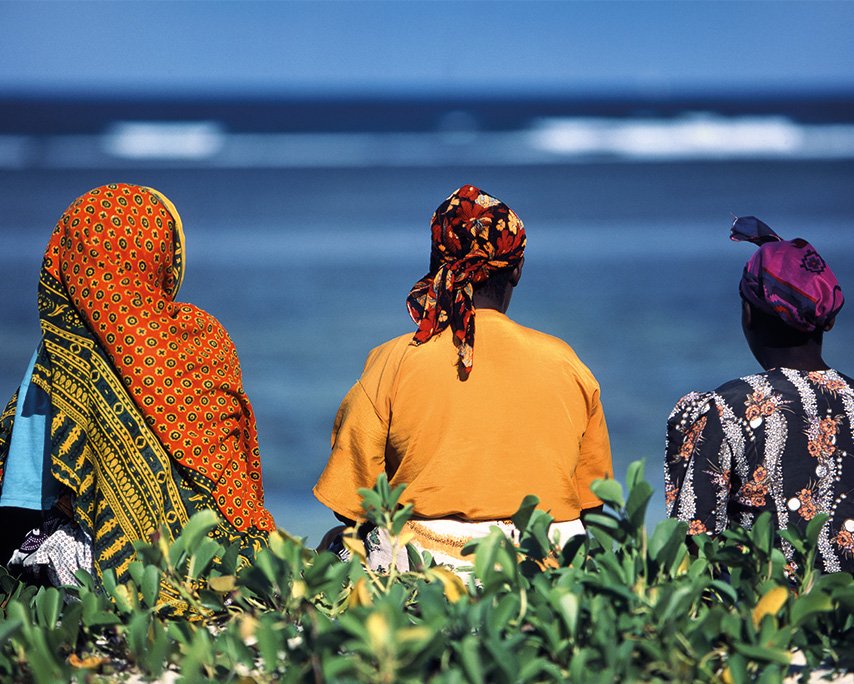Three women sitting at the beach in Mombasa , Kenya
Photo Credit: Kypros/Getty Images
World Day for Cultural Diversity for Dialogue and Development
In a world marked by diversity, our cultural heritage shapes our identities, influences our perspectives, and fosters dialogue among communities. Recognising the significance of cultural diversity, the World Day for Cultural Diversity for Dialogue and Development serves as a vital platform to celebrate and promote the value of different cultures. As we embrace this occasion, it is imperative to highlight the importance of culture as a global public good. Moreover, we must consider cultural rights that need safeguarding including protecting indigenous communities’ ancestral knowledge and preserving and promoting cultural and natural heritage. By doing so, we align our efforts with the Sustainable Development Goal (SDG) of ensuring inclusive, sustainable, and resilient societies.
Culture as a Global Public Good
Culture is a treasured asset of humanity, transcending boundaries and enriching societies worldwide. It encompasses the collective knowledge, beliefs, customs, and artistic expressions that define diverse communities. Culture serves as a bridge, fostering understanding, empathy, and cooperation among people of different backgrounds. It shapes our perceptions, allowing us to appreciate and learn from one another’s unique perspectives. By embracing culture as a global public good, we acknowledge its inherent value and strive to protect, promote, and share it for the benefit of all.
The Set of Cultural Rights
Cultural rights form the foundation of a thriving, inclusive society. They encompass the rights of individuals and communities to express, preserve, and enjoy their cultural heritage without discrimination. These rights include the freedom to participate in cultural life, access cultural goods and services, and contribute to cultural expressions. Moreover, cultural rights ensure the protection of linguistic diversity, which is a cornerstone of cultural identity.
Indigenous Communities and Ancestral Knowledge
Indigenous communities possess an invaluable wealth of ancestral knowledge accumulated over centuries of harmonious coexistence with nature. Their traditional practices, wisdom, and sustainable ways of life are crucial for our collective future. Recognising the importance of preserving this cultural heritage, it is essential to respect and support the rights of indigenous communities to protect and transmit their ancestral knowledge. This includes safeguarding their traditional lands, resources, and intellectual property rights.
Protection and Promotion of Cultural and Natural Heritage
Cultural and natural heritage is an irreplaceable testament to our shared human history and environmental diversity. Preserving these legacies ensures that future generations can connect with their roots and learn from the past. Therefore, governments, organisations, and individuals must collaborate to protect cultural and natural heritage sites from destruction, illicit trafficking, and neglect. By doing so, we safeguard the richness and diversity of our collective cultural heritage.
Relevance to Sustainable Development Goals (SDGs)
The celebration of cultural diversity and the protection of cultural rights align with several SDGs. Of particular relevance is SDG 16: Peace, Justice, and Strong Institutions, which emphasises promoting inclusive societies and fostering dialogue among diverse communities. Additionally, SDG 11: Sustainable Cities and Communities recognises the importance of preserving cultural heritage and boosting sustainable tourism. Finally, SDG 4: Quality Education highlights the significance of integrating diverse cultural perspectives into educational curricula to foster mutual understanding and tolerance.
On World Day for Cultural Diversity for Dialogue and Development, let us recognise and celebrate the wealth of cultural diversity that surrounds us. As a global public good, Culture enriches our lives, stimulates creativity, and nurtures harmonious coexistence. By protecting the cultural rights of individuals and communities, including the right of indigenous communities to safeguard their ancestral knowledge, and preserving our cultural and natural heritage, we contribute to the sustainable development and inclusivity of our societies. Let us unite in embracing the mosaic of cultures that make our world a vibrant and interconnected place.



